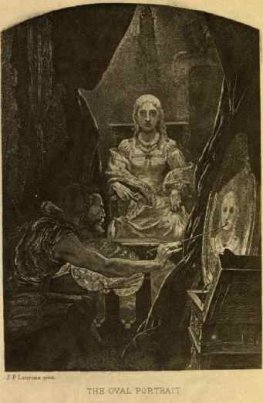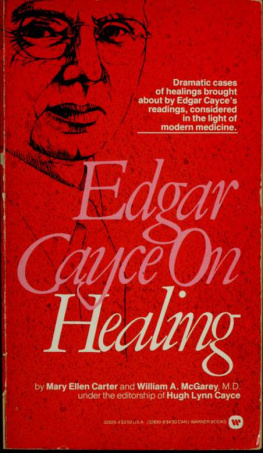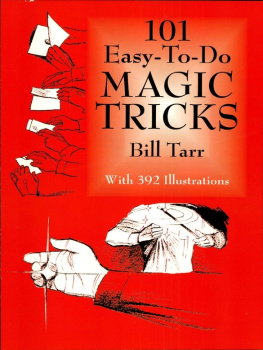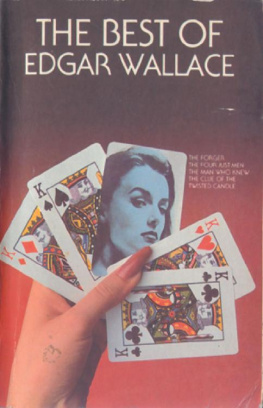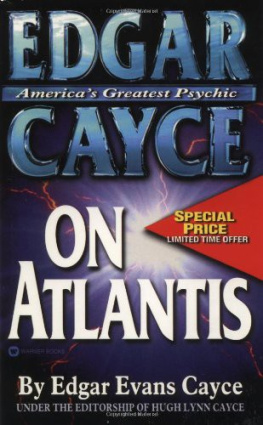Edgar Poe - The System of Doctor Tarr and Professor Fether
Here you can read online Edgar Poe - The System of Doctor Tarr and Professor Fether full text of the book (entire story) in english for free. Download pdf and epub, get meaning, cover and reviews about this ebook. genre: Prose / Humor. Description of the work, (preface) as well as reviews are available. Best literature library LitArk.com created for fans of good reading and offers a wide selection of genres:
Romance novel
Science fiction
Adventure
Detective
Science
History
Home and family
Prose
Art
Politics
Computer
Non-fiction
Religion
Business
Children
Humor
Choose a favorite category and find really read worthwhile books. Enjoy immersion in the world of imagination, feel the emotions of the characters or learn something new for yourself, make an fascinating discovery.

The System of Doctor Tarr and Professor Fether: summary, description and annotation
We offer to read an annotation, description, summary or preface (depends on what the author of the book "The System of Doctor Tarr and Professor Fether" wrote himself). If you haven't found the necessary information about the book — write in the comments, we will try to find it.
The System of Doctor Tarr and Professor Fether — read online for free the complete book (whole text) full work
Below is the text of the book, divided by pages. System saving the place of the last page read, allows you to conveniently read the book "The System of Doctor Tarr and Professor Fether" online for free, without having to search again every time where you left off. Put a bookmark, and you can go to the page where you finished reading at any time.
Font size:
Interval:
Bookmark:
The System of Doctor Tarr and Professor Fether
by Edgar Allan Poe
DURING the autumn of 18, while on a tour through the extreme southern provinces of France, my route led me within a few miles of a certain Maison de Sante or private mad-house, about which I had heard much in Paris from my medical friends. As I had never visited a place of the kind, I thought the opportunity too good to be lost; and so proposed to my travelling companion (a gentleman with whom I had made casual acquaintance a few days before) that we should turn aside, for an hour or so, and look through the establishment. To this he objected pleading haste in the first place, and, in the second, a very usual horror at the sight of a lunatic. He begged me, however, not to let any mere courtesy towards himself interfere with the gratification of my curiosity, and said that he would ride on leisurely, so that I might overtake him during the day, or, at all events, during the next. As he bade me good-bye, I bethought me that there might be some difficulty in obtaining access to the premises, and mentioned my fears on this point. He replied that, in fact, unless I had personal knowledge of the superintendent, Monsieur Maillard, or some credential in the way of a letter, a difficulty might be found to exist, as the regulations of these private mad-houses were more rigid than the public hospital laws. For himself, he added, he had, some years since, made the acquaintance of Maillard, and would so far assist me as to ride up to the door and introduce me; although his feelings on the subject of lunacy would not permit of his entering the house.
I thanked him, and, turning from the main road, we entered a grass-grown by-path, which, in half an hour, nearly lost itself in a dense forest, clothing the base of a mountain. Through this dank and gloomy wood we rode some two miles, when the Maison de Sante came in view. It was a fantastic chateau, much dilapidated, and indeed scarcely tenantable through age and neglect. Its aspect inspired me with absolute dread, and, checking my horse, I half resolved to turn back. I soon, however, grew ashamed of my weakness, and proceeded.
As we rode up to the gate-way, I perceived it slightly open, and the visage of a man peering through. In an instant afterward, this man came forth, accosted my companion by name, shook him cordially by the hand, and begged him to alight. It was Monsieur Maillard himself. He was a portly, fine-looking gentleman of the old school, with a polished manner, and a certain air of gravity, dignity, and authority which was very impressive.
My friend, having presented me, mentioned my desire to inspect the establishment, and received Monsieur Maillard's assurance that he would show me all attention, now took leave, and I saw him no more. When he had gone, the superintendent ushered me into a small and exceedingly neat parlor, containing, among other indications of refined taste, many books, drawings, pots of flowers, and musical instruments. A cheerful fire blazed upon the hearth. At a piano, singing an aria from Bellini, sat a young and very beautiful woman, who, at my entrance, paused in her song, and received me with graceful courtesy. Her voice was low, and her whole manner subdued. I thought, too, that I perceived the traces of sorrow in her countenance, which was excessively, although to my taste, not unpleasingly, pale. She was attired in deep mourning, and excited in my bosom a feeling of mingled respect, interest, and admiration.
I had heard, at Paris, that the institution of Monsieur Maillard was managed upon what is vulgarly termed the "system of soothing" that all punishments were avoided that even confinement was seldom resorted to that the patients, while secretly watched, were left much apparent liberty, and that most of them were permitted to roam about the house and grounds in the ordinary apparel of persons in right mind. Keeping these impressions in view, I was cautious in what I said before the young lady; for I could not be sure that she was sane; and, in fact, there was a certain restless brilliancy about her eyes which half led me to imagine she was not. I confined my remarks, therefore, to general topics, and to such as I thought would not be displeasing or exciting even to a lunatic. She replied in a perfectly rational manner to all that I said; and even her original observations were marked with the soundest good sense, but a long acquaintance with the metaphysics of mania, had taught me to put no faith in such evidence of sanity, and I continued to practise, throughout the interview, the caution with which I commenced it.
Presently a smart footman in livery brought in a tray with fruit, wine, and other refreshments, of which I partook, the lady soon afterward leaving the room. As she departed I turned my eyes in an inquiring manner toward my host.
"No," he said, "oh, no a member of my family my niece, and a most accomplished woman." "I beg a thousand pardons for the suspicion," I replied, "but of course you will know how to excuse me. The excellent administration of your affairs here is well understood in Paris , and I thought it just possible, you know-
"Yes, yes say no more or rather it is myself who should thank you for the commendable prudence you have displayed. We seldom find so much of forethought in young men; and, more than once, some unhappy contre-temps has occurred in consequence of thoughtlessness on the part of our visitors. While my former system was in operation, and my patients were permitted the privilege of roaming to and fro at will, they were often aroused to a dangerous frenzy by injudicious persons who called to inspect the house. Hence I was obliged to enforce a rigid system of exclusion; and none obtained access to the premises upon whose discretion I could not rely."
"While your former system was in operation!" I said, repeating his words "do I understand you, then, to say that the 'soothing system' of which I have heard so much is no longer in force?"
"It is now," he replied, "several weeks since we have concluded to renounce it forever."
"Indeed! you astonish me!"
"We found it, sir," he said, with a sigh, "absolutely necessary to return to the old usages. The danger of the soothing system was, at all times, appalling; and its advantages have been much overrated. I believe, sir, that in this house it has been given a fair trial, if ever in any. We did every thing that rational humanity could suggest. I am sorry that you could not have paid us a visit at an earlier period, that you might have judged for yourself. But I presume you are conversant with the soothing practice with its details."
"Not altogether. What I have heard has been at third or fourth hand."
"I may state the system, then, in general terms, as one in which the patients were menages-humored. We contradicted no fancies which entered the brains of the mad. On the contrary, we not only indulged but encouraged them; and many of our most permanent cures have been thus effected. There is no argument which so touches the feeble reason of the madman as the argumentum ad absurdum. We have had men, for example, who fancied themselves chickens. The cure was, to insist upon the thing as a fact to accuse the patient of stupidity in not sufficiently perceiving it to be a fact and thus to refuse him any other diet for a week than that which properly appertains to a chicken. In this manner a little corn and gravel were made to perform wonders."
"But was this species of acquiescence all?"
"By no means. We put much faith in amusements of a simple kind, such as music, dancing, gymnastic exercises generally, cards, certain classes of books, and so forth. We affected to treat each individual as if for some ordinary physical disorder, and the word 'lunacy' was never employed. A great point was to set each lunatic to guard the actions of all the others. To repose confidence in the understanding or discretion of a madman, is to gain him body and soul. In this way we were enabled to dispense with an expensive body of keepers."
Font size:
Interval:
Bookmark:
Similar books «The System of Doctor Tarr and Professor Fether»
Look at similar books to The System of Doctor Tarr and Professor Fether. We have selected literature similar in name and meaning in the hope of providing readers with more options to find new, interesting, not yet read works.
Discussion, reviews of the book The System of Doctor Tarr and Professor Fether and just readers' own opinions. Leave your comments, write what you think about the work, its meaning or the main characters. Specify what exactly you liked and what you didn't like, and why you think so.



